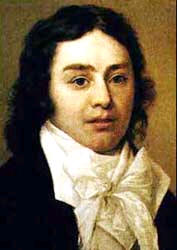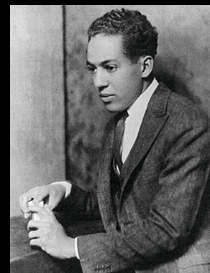 |
This course is a senior capstone course, designed for students completing their last semester of college work. The primary aim of the course is to crown your undergraduate education by helping you become more independent learners. By the end of the term you will: |
 |
- Use the library and electronic resources to gather information on broad and focused topics in English;
- Make a formal academic presentation on a "revolutionary" book;
- Lead and participate in lively and challenging class discussions;
- Write a 20-25-page argumentative research paper characterized by unity, organization, and support; appropriate style and documentation; and standard usage and mechanics;
- Have a sense of the ways a book may be considered revolutionary.
 I assume that you have had a number of English classes and have completed
all the British and American literature survey courses, that you know the
basic rules and guidelines of MLA documentation, that you can write an
argumentative essay on a literary topic, that you know basic literary terms
for poetry and fiction (plot, symbol, metaphor, etc.), that you expect to
have your work criticized so that you can improve, that you want to learn
more about literature and are willing to work hard to do so, and that you
will seek help from me if you ever have problems in the course.
I assume that you have had a number of English classes and have completed
all the British and American literature survey courses, that you know the
basic rules and guidelines of MLA documentation, that you can write an
argumentative essay on a literary topic, that you know basic literary terms
for poetry and fiction (plot, symbol, metaphor, etc.), that you expect to
have your work criticized so that you can improve, that you want to learn
more about literature and are willing to work hard to do so, and that you
will seek help from me if you ever have problems in the course.
 This course will require a great deal of initiative, discipline,
dedication, independence, maturity, and hard work on your part. As
individuals you will drive the discussions and conversations in our class,
probably more than in any other class you've had. There are two formal
assignments: a team presentation on one of our books and an argumentative
research paper. At the beginning of the course, I will outline the formal
expectations, make all of the assignments, give you a review of the research
tools available in our library, and meet with you individually. The second
week of class I will demonstrate a sample presentation on Wordsworth and
Coleridge's Lyrical Ballads, and then we will discuss the
collection for two or three days. Weeks three and four will be devoted to
research and conference time with me on your presentations.
This course will require a great deal of initiative, discipline,
dedication, independence, maturity, and hard work on your part. As
individuals you will drive the discussions and conversations in our class,
probably more than in any other class you've had. There are two formal
assignments: a team presentation on one of our books and an argumentative
research paper. At the beginning of the course, I will outline the formal
expectations, make all of the assignments, give you a review of the research
tools available in our library, and meet with you individually. The second
week of class I will demonstrate a sample presentation on Wordsworth and
Coleridge's Lyrical Ballads, and then we will discuss the
collection for two or three days. Weeks three and four will be devoted to
research and conference time with me on your presentations.
 The rest of the course will be made of
three-day segments beginning with a
team presentation and followed by two days of discussion on the works.
We will sometimes have a day betwen units devoted to the individual research projects
and peer review activities. In addition, our class will have optional
meetings outside of class to view film versions of some of our books, listen
to music influential to one of our writers, celebrate days important to
literary history, and other such activities.
The rest of the course will be made of
three-day segments beginning with a
team presentation and followed by two days of discussion on the works.
We will sometimes have a day betwen units devoted to the individual research projects
and peer review activities. In addition, our class will have optional
meetings outside of class to view film versions of some of our books, listen
to music influential to one of our writers, celebrate days important to
literary history, and other such activities.
 The theme of the course is Revolutionary Books, and we
will use this topic as a loose way to organize and draw connections between
the texts. We will look at different connotations of the label and consider
different ways a work might be considered revolutionary, whether
from a technical/formal, Marxist, political-historical, feminist, or
cultural perspective. I do not want the word
to guide all of our discussions (boring!), but it should be in the back of
your minds as we read, think about, and discuss the books. My hope is that
by the end of the term you will have toiled to produce two pieces of work
on which you will look back and feel proud.
The theme of the course is Revolutionary Books, and we
will use this topic as a loose way to organize and draw connections between
the texts. We will look at different connotations of the label and consider
different ways a work might be considered revolutionary, whether
from a technical/formal, Marxist, political-historical, feminist, or
cultural perspective. I do not want the word
to guide all of our discussions (boring!), but it should be in the back of
your minds as we read, think about, and discuss the books. My hope is that
by the end of the term you will have toiled to produce two pieces of work
on which you will look back and feel proud.
Attendance: You're seniors now. I expect you to attend all classes and to have read all assignments. Students who are not prepared for class and who do not attend regularly will not pass the course.
 Academic
honesty: In order for an
academic community to thrive, members of that community must be able to
trust the honesty and sincerity of communication between members. The very
integrity of a college is grounded in academic honesty. One form of academic
dishonesty that can undermine this integrity is plagiarism,
intentionally or unintentionally copying the words or ideas from another
source without giving that source credit. Because of the serious harm
plagiarism causes an academic environment, I have zero tolerance for it:
students who plagiarize will likely fail the class. Do not
hesitate to consult with me if you have questions about academic honesty.
(For more information, see also "Academic Dishonesty" in the
Scot's Guide
and appropriate chapters in Bedford.)
Academic
honesty: In order for an
academic community to thrive, members of that community must be able to
trust the honesty and sincerity of communication between members. The very
integrity of a college is grounded in academic honesty. One form of academic
dishonesty that can undermine this integrity is plagiarism,
intentionally or unintentionally copying the words or ideas from another
source without giving that source credit. Because of the serious harm
plagiarism causes an academic environment, I have zero tolerance for it:
students who plagiarize will likely fail the class. Do not
hesitate to consult with me if you have questions about academic honesty.
(For more information, see also "Academic Dishonesty" in the
Scot's Guide
and appropriate chapters in Bedford.)
Books (in chronological order)
- Wordsworth, William & Samuel Taylor Coleridge. Lyrical Ballads. 1798. Ed. R.L. Brett and A.R. Jones. 2nd Edition. New York: Routledge, 1991. 0415063884
- Whitman, Walt. Leaves of Grass. 1855. Ed. Malcolm Cowley. New York: Penguin, 1976. 0140421998
- Hemingway, Ernest. In Our Time. 1925. New York: Scribner, 1996. 0684822768
- Woolf, Virginia. To the Lighthouse. 1927. New York: Harcourt, 1955. 0152907399
- Hughes, Langston. Fine Clothes to the Jew. New York: Alfred A. Knopf, 1927. [photocopy]
- Winterson, Jeanette. Oranges Are Not the Only Fruit. 1985. New York: Grove,1997. 0802135161
- The eighth edition of The Bedford Handbook.
Senior Honors: Students who have earned a 3.5 GPA in their English classes are eligible to submit their senior theses for departmental honors consideration. I will notify you if you are eligible, and you will have a somewhat earlier deadline for your final paper.
SYLLABUS IS SUBJECT TO CHANGE.